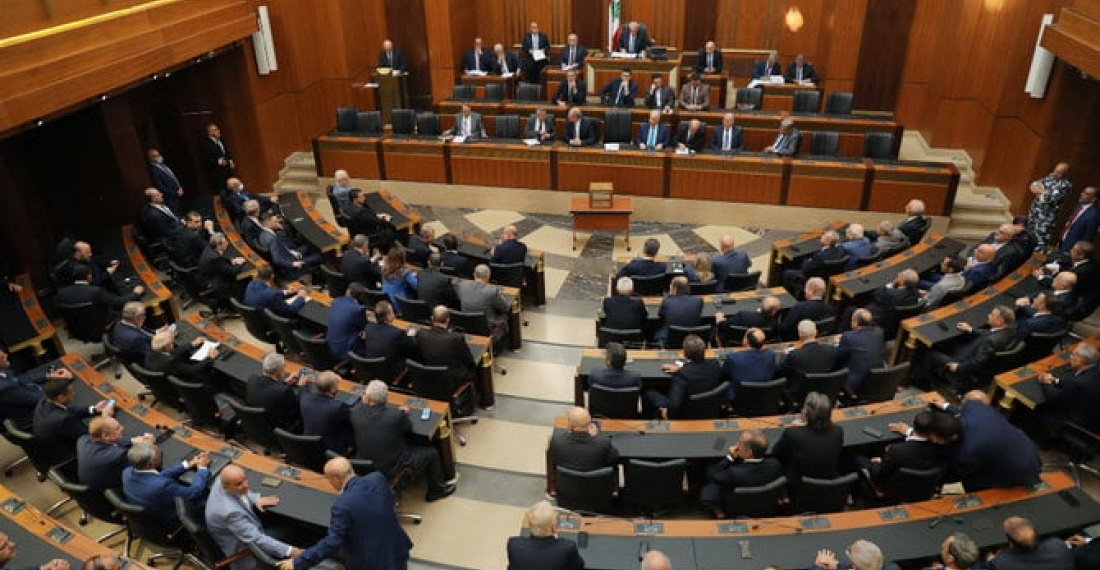Lebanese MPs failed for a sixth time on Thursday to elect a president to fill the vacancy left by Michel Aoun whose term expired last month.
Parliament Speaker Nabih Berri announced that a seventh vote would be held next Thursday.
A total of 112 MPs cast ballots on Thursday, from a total of 128. Independent MP Michel Mouawad received 43 votes and academic Issam Khalifeh received seven. One vote was cast for former MP and presidential candidate Sleiman Frangieh.
Ziad Baroud, a former minister, received three. MP Michel Daher, a non-Maronite who did not submit his candidacy, received one vote, and two ballots were canceled.
However, 46 blank votes were cast by Hezbollah. Parliament is split between supporters of Hezbollah and its opponents.
The votes for Mouawad, whose candidacy is opposed by Hezbollah, was far fewer than the two-thirds needed for outright election in the first round. Hezbollah and their Amal allies then withdrew from the session, resulting in the loss of quorum and spiking any chance of a second round of voting.
Kataeb MP Sami Gemayel started the session with a question on why a two-thirds quorum was needed in a second round, when the constitution stipulated that an absolute majority was sufficient.
Berri said that sessions always required a two-thirds quorum. The speaker added that a two-thirds majority was needed for the election of the president in the first round and an absolute majority was sufficient for the second.
Georges Adwan, Lebanese Forces MP, supported Berri’s commitment to the two-thirds quorum. However, he added: “How come the deputies who do not attend the electoral sessions are not subject to legal consequences?”
Mouawad’s votes declined by one from the previous vote on Wednesday. “We are working to reach consensus with reformist deputies who did not vote for me,” he said, adding that the battle “we are fighting today is between those who want to have a purely Lebanese electoral process and those who are waiting for the secret word from outside.”
Hezbollah’s MPs, who continued to cast blank votes, did not participate in the quorum dispute. “The candidate we want has to be sovereign and we don’t want a president that stabs the resistance in the back,” one was quoted as saying.






